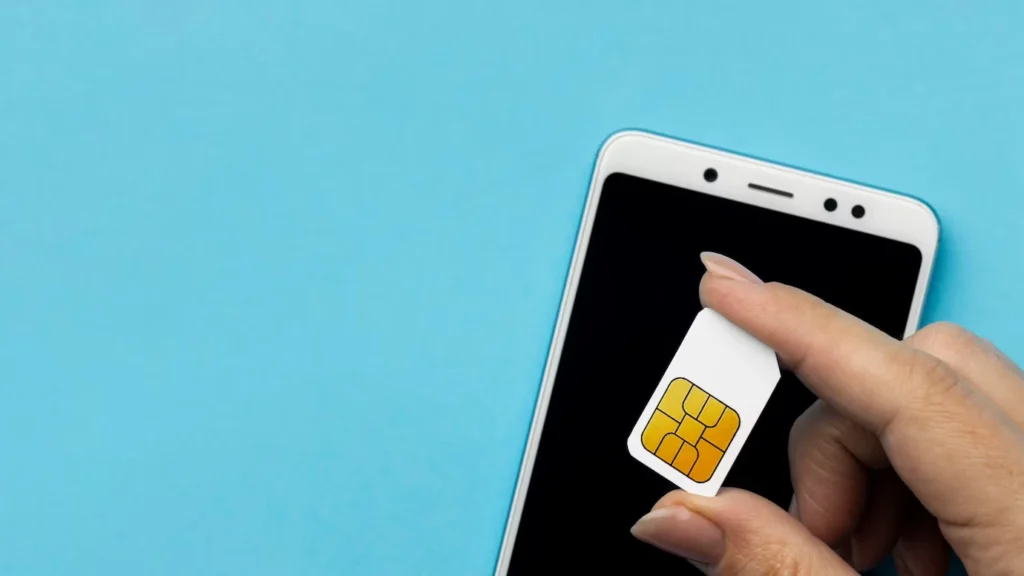When planning for international travel, there are many things to consider. But one of the most important is buying an international SIM card. Not only can an international SIM card save you money on roaming fees, it also allows you to stay connected while you’re traveling abroad.
Making the right choice of international SIM card is essential for making your trip hassle-free and enjoyable. But deciding which provider, plan, and package to go with can be overwhelming. With so many options available, you may ask, “What should I look for when buying an international SIM card?”
The answer is simple: there are 6 essential factors to consider when buying an international SIM card. These are: coverage, cost, data allowance, call rates, customer service, and device compatibility. Each factor is important and will play a major role in determining which international SIM card is right for you.
In this blog post, we’ll discuss these 6 factors in depth and provide tips and advice to help you make the best purchasing decision.
1) Phone Compatibility
First things first, let’s talk about what phone compatibility means. Simply put, it refers to whether your mobile phone will work in a particular country or region. You see, not all mobile phones are created equal. Some are designed to work on specific networks or frequencies, and these networks and frequencies can differ from country to country.
For instance, your mobile phone should support GSM or a tri-band if you’re traveling to Europe. GSM is the standard network used in most countries worldwide, and tri-band phones can work on three different frequencies: 900, 1800, and 1900 MHz.
On the other hand, if your phone is a CDMA device or is designed only for USA frequencies, it will only work in some other countries. CDMA is a different network technology used primarily in the US and a few other countries. So, if you try to use your CDMA phone in Europe or Asia, it won’t work (no matter what SIM card you use).
Now, let’s discuss why phone compatibility is important when buying international SIM cards. An international SIM card is a special SIM card that allows you to use your phone in different countries without paying exorbitant roaming charges. When you insert an international SIM card into your phone, it will automatically switch to the local network, and you’ll be able to make calls, send messages, and use data just like you would at home.
However, if your phone is not compatible with the local network, you won’t be able to use your international SIM card. This means you’ll be stuck with your regular SIM card and must pay expensive roaming charges. So, if you plan to buy an international SIM card for your travels, ensure your phone is compatible with the local network.
2) Incoming Calls
Another important aspect is the cost of incoming calls and messages. While certain countries like the USA charge money for incoming calls and text messages, others may not have any additional fees. If you visit Europe, you are in luck, as there are no charges for making and receiving calls or messages. However, if you are traveling to other countries, you must research and determine whether the incoming call facilities are free or chargeable.
One of the best ways to save money on incoming calls is to buy an international SIM card. This will allow you to make and receive calls much cheaper. Several options in the market offer a range of benefits, like low rates, unlimited data, and free incoming calls.
Buying an international SIM card is a smart move as it not only saves you money but also provides you with the flexibility to use your phone without any restrictions. You can easily switch between carriers and choose the best plan that suits your needs.
Apart from buying an international SIM card, there are some other hacks that you can use to lower the cost of incoming calls. One of the easiest hacks is to send messages or make a small call to the people and ask them to call you back. This may seem small, but it can make a big difference.

3) Hidden Data
Hidden data usage is something that many people are unaware of, but it can lead to high data costs when traveling abroad.
Many smartphones run apps in the background, even when you are not actively using them. These apps can use up much of your data allowance without realizing it. To avoid this, you should regularly check the apps running in the background and close them if not in use. You can also turn off automatic updates from your mobile setting options to prevent apps from using data without your knowledge.
When traveling internationally, data costs can be extremely high, and it is important to be careful about your data consumption. Buying an international SIM card can be a great way to save money on data costs. These SIM cards allow you to use local networks and avoid expensive roaming charges. With an international SIM card, you can stay connected to your loved ones and use your smartphone without worrying about high data costs.
4) Runaway Spending
The next important factor is your spending. With the convenience of an international SIM card, getting carried away with your usage can be easy, resulting in runaway spending.
A prepaid card lets you control your data usage by topping up your balance as needed. This is a great option for those who want to avoid unexpected charges, as you can only use what you’ve paid for. However, if you use your phone frequently, you may be constantly topping up your balance, which can become a hassle.
A postpaid card, on the other hand, gives you more freedom to make calls without constantly boosting your balance. This is a great option for those who need to make many calls or use their phone frequently. However, keeping a close eye on your spending is important, as it can be easy to get carried away and overspend.
When it comes to managing your expenses, you can do a few things. First, set a budget for yourself and stick to it. This will help you avoid overspending and ensure you only use what you can afford. Second, monitor your usage closely. Many international SIM card providers offer apps or online portals that allow you to track your usage and spending in real time. This can be a great way to keep tabs on how much you’re spending and avoid unexpected charges.
5) Check If the SIM Card You Buy Makes It Expensive To Call
Are you aware that the SIM card you purchase might make it expensive to call? Knowing that every SIM card has a number registered in a particular country is essential. Even the international SIM cards must be registered in a specific country. This means that when people call you, it will be like they are calling that country, no matter where you are.
If you have someone who frequently calls you, consider buying an international SIM card, too. This way, you can avoid hefty charges when making and receiving calls. Buying international SIM cards is a cost-effective alternative to traditional roaming charges, making it easier to stay connected with your loved ones wherever you go.
Buying international SIM cards is an excellent option for frequent travelers who want to stay connected with their loved ones without incurring high roaming charges. They offer local rates for calls and texts, data allowances, and a single phone number that can be used in multiple countries. So, the next time you plan to travel abroad, consider buying an international SIM card to save money and stay connected. The rate of scamming is increasing in international and local SIM cards. Be aware; I read about Unifon in Norway a few days back.
6) Check for inflated Call Rates
Before you buy an international SIM card, it’s important to check for inflated call rates, especially for the countries you will be visiting.
Inflated call rates can eat into your budget and leave you with a nasty surprise when you receive your bill. Therefore, it’s important to research and finds an international SIM card that offers you competitive rates for the countries you visit.
When shopping for an international SIM card, it’s important to consider the types of calls you will be making. Some international SIM cards only offer competitive rates for certain call types, such as landline calls or other mobile phones.
In conclusion, buying an international SIM card is a crucial aspect of planning for international travel. It helps you save money on roaming fees and keeps you connected with your loved ones while you’re away. However, choosing the right international SIM card can take time and effort. By considering the six essential factors mentioned above – coverage, cost, data allowance, call rates, customer service, and device compatibility – you can make an informed decision and ensure a hassle-free and enjoyable trip abroad. So, before you embark on your next international adventure, make sure to do your research and choose the international SIM card that best suits your needs.
